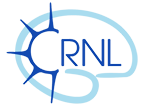Erwan Moussy, Doctorant Neuropop
Erwan Moussy (NEUROPOP)

I'm pleased to invite you to my thesis defense entitled “Connected olfactory training: impact on cognition and well-being” (abstract attached).
It will take place on Monday, December 9 at 2 pm in the Neurocampus amphitheater (Bâtiment 462, Hôpital Le Vinatier, 95 Boulevard Pinel, 69675 Bron Cedex).
The presentation will be in French.
The jury will be composed of :
Pr Hélène Amieva, Université de Bordeaux (Reporter)
Dr Denis Pierron, CNRS (Reporter)
Pr Catherine Dacremont, Université Bourgogne Franche-Comté (Examiner)
Dr Corine Amat, Université Lyon 1 (Examiner)
Dr Marion Richard, Université Lyon 1 (Thesis supervisor)
Dr Moustafa Bensafi, CNRS (Thesis co-supervisor)
Dr Camille Ferdenzi, CNRS (Thesis co-supervisor)
Abstract
The sense of smell fulfills fundamental functions in everyday life, through its involvement in danger detection, food intake and social relations. Consequently, partial (hyposmia) or total (anosmia) loss of smell has a significant impact on living conditions, affecting the physical and mental health of those affected. A significant number of people are affected by smell disorders, a number that is set to grow in the post COVID-19 health crisis context and due to the phenomenon of ageing populations. Despite their significant prevalence and consequences, olfactory disorders are poorly managed, lacking access to diagnosis and effective treatment. Among olfactory remediation strategies, olfactory training has emerged as a promising approach but remains to be optimized as its efficacy appears to vary from study to study. Olfactory training could also have wider benefits on brain function, which are currently little explored.
This thesis proposes new and innovative diagnostic and remediation strategies to improve the management of olfactory disorders. It also explores the interest of olfactory training
as a strategy to promote cerebral well-ageing.
We developed a new generation of connected olfactory tests, enabling rapid and easy assessment of olfactory capacities, more compatible with routine clinical use than existing
psychophysical tests. Based on an identification and perceived intensity score of 8 odors, this test can reliably identify people suffering from anosmia of various origins.
In order to improve the effectiveness of olfactory training, we developed a protocol supported by a digital platform, enabling improved training follow-up and patient adherence.
We also tested whether increasing the frequency of odor exposure or renewing odors during olfactory training would improve olfactory recovery. In post-COVID-19 patients with persistent olfactory deficits, 3 months of olfactory training led to an improvement in olfactory perception and quality of life (including food enjoyment). However, increasing the number of odors smelled daily does not seem to improve the effectiveness of olfactory training. A training based on the use of scented products from home also proved effective but required particular vigilance with regard to patient adherence. We then tested the interest of olfactory training with odor renewal, in elderly participants with or without olfactory disorders. The results suggest better olfactory recovery in dysosmic participants who underwent this training for 4 months, compared with those who underwent training with a single odor.
Finally, we assessed the potential benefits of olfactory training with odor renewal on the cognition of elderly participants, as well as on well-being, quality of life and food appreciation. Our results show no significant improvement in cognition, but a benefit on depressive symptoms in elderly participants, with or without smell disorders. Analysis of noradrenergic system activity showed no change following olfactory training, suggesting that it does not contribute to the mechanisms underlying the benefits of training.
Taken together, this work opens up new perspectives for the diagnosis and remediation of olfactory deficits. It also suggests that the use of odors to promote better brain aging remains to be further explored.
CRNL | CH Le Vinatier | Bâtiment 462 Neurocampus Michel Jouvet | Amphithéâtre | 95 Boulevard Pinel | 69500 Bron











